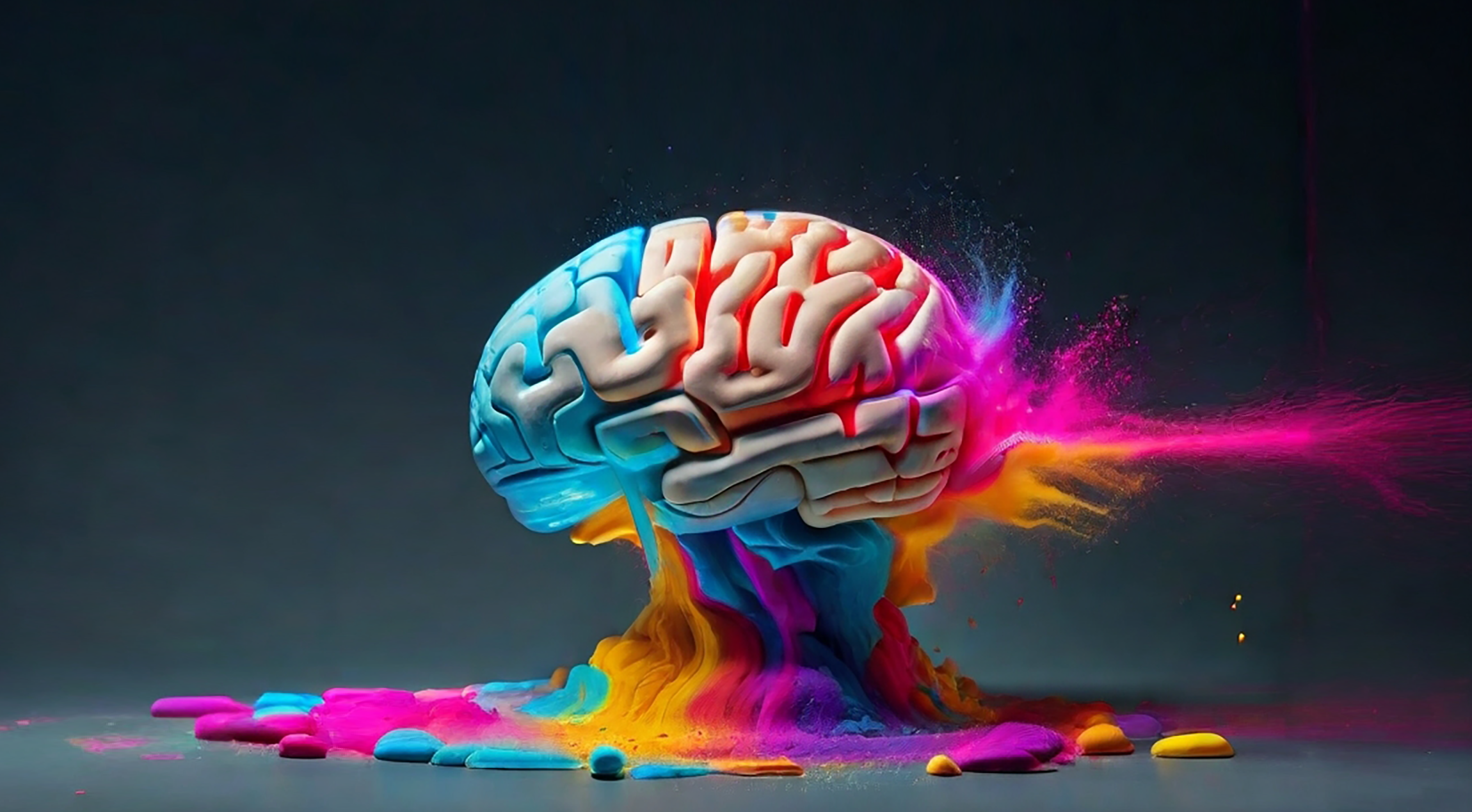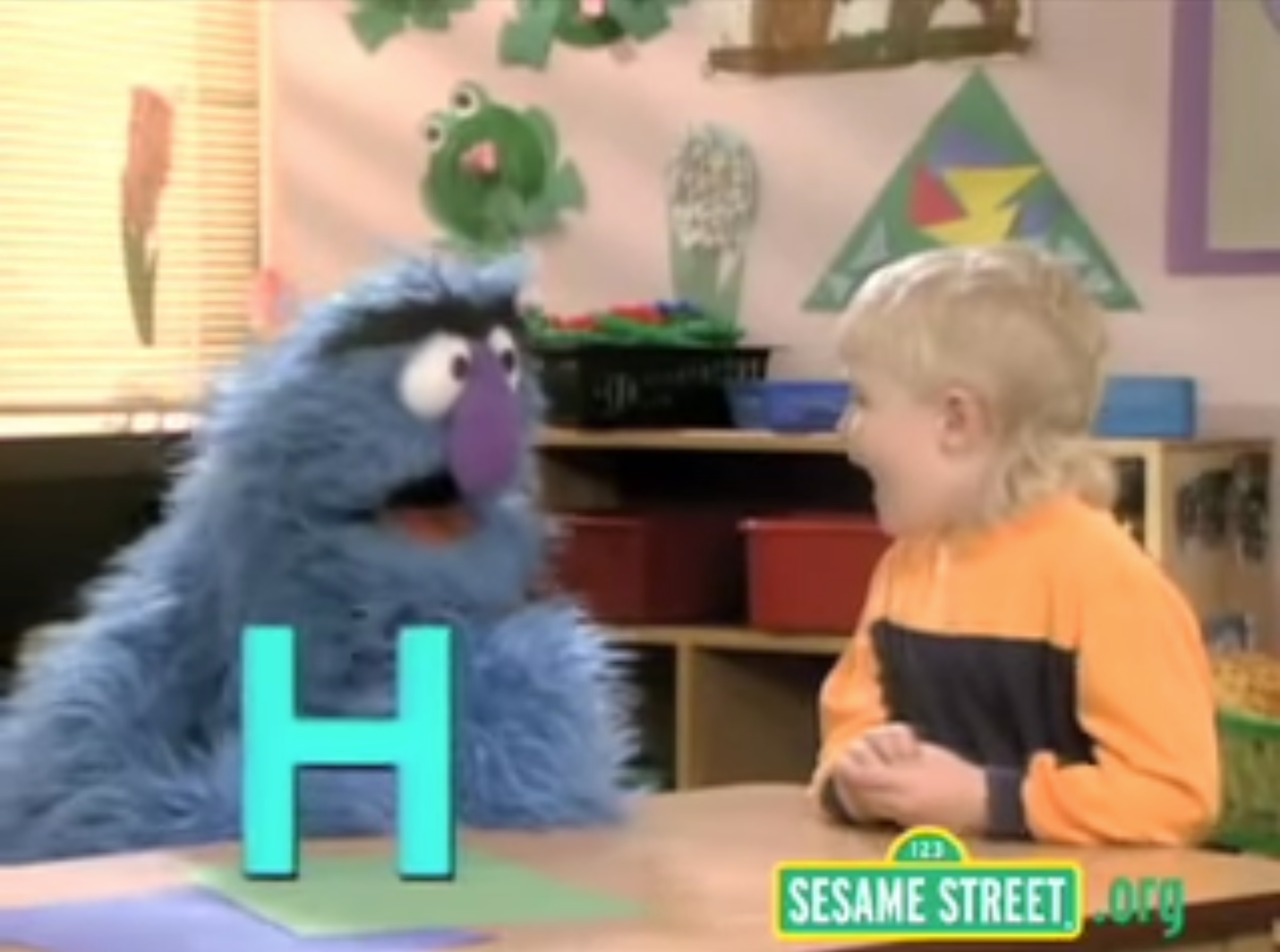Rebranding ADHD
We can’t change our brains.
But maybe we can change some minds.

Let’s face it, talking about ADHD sucks.
It’s hard enough living with a brain that doesn’t always do exactly what you want it to. Add to this a complex mix of anger, relief, disappointment, sadness and shame for finally understanding why.
Any of these sound familiar?
- Clever in unconventional ways, like pattern matching, creative problem solving or just coming up with lots of great ideas
- Powerful ears that sometimes work against them (can hear very well but also gets jumpy)
- Allergic or sensitive to strange things, like woollen clothes, dusty spaces or just being outdoors
- Loves listening to one song over and over… Or the opposite: Could never listen to the same thing twice!
- Can be the life of the party one minute, then disappear for days
- Struggles to turn up on time or finish projects, despite saying how much they want to
- Extremely hard on themselves, despite being quite well liked
- Communicates by drawing, humming, or some other interesting method
- Makes sense of themselves or the world by collecting things or grouping them into complex, personal categories
This is just a very short list of possible symptoms of Attention Deficit Hyperactivity Disorder (ADHD).
But notice there was no mention of moving uncontrollably? Or having a deficit of attention? That’s because an entire generation of people are suddenly realising ADHD may be very different to the stories we were told growing up.
Share this page with your network to help us collect 5000 responses before the APA’s next Annual Meeting in May.
With your help, we plan to present the findings of this research project to the people responsible for defining and guiding global mental health policy on behalf of the entire ADHD community.
The case for Rebranding ADHD.
There’s actually a few different reasons why we decided to take this approach.
Let’s break them down, one by one.
WAIT, BUT WHY?
1. It’s not really a “deficit”
@connordewolfe Do you think its a better name?🤔
As illustrated in the video above, the word ‘deficit’ isn’t really the best way to describe ADHD.
A deficit of dopamine? Sure.
A deficit of completed tasks, fulfilling projects and broader life goals? Sadly, yes sometimes.
But as Connor says, the underlying causes really make it more of a regulation issue, which is why so many of you have told us that DAVE is a pretty great replacement name.
2. Brought to you by the letter H

Our research suggests that worldwide, tens of millions may have fallen between the cracks due to a small change in the diagnostic criteria in 1987.
By adding the letter ‘H’ to something previously known simply as ADD (Attention Deficit Disorder), millions of people were finally able to access medication and therapy to help regulate the physical symptoms commonly associated with ADHD.
However, in doing so, it appears an entire generation of people (born roughly between the late 1970’s and the mid 2000’s) may have gone largely unseen or misdiagnosed due to a lack of external ‘hyperactive’ behaviour.
3. Nobody is excited to get their first pair of ADHD Jordans

Jim Carrey & Whoopi Goldberg.
Richard Branson & Bill Gates.
Jamie Oliver & Heston Blumenthal.
Dave Grohl, Britney Spears, Justin Timberlake, Emma Stone, Will Smith, Channing Tatum, Simone Biles, Michael Jordan all have ADHD.
Most experts agree that Van Gogh, Da Vinci, Picasso, Dali and even Albert freaking Einstein almost certainly had ADHD.
But when was the last time you heard any of these extraordinarily gifted humans discussing their diagnosis? It doesn’t happen.
Even if it gives you super powers like divergent thinking or hyper focus, talking about the stuff in your head is embarrassing, because it’s invisible.
We think it’s time for that to change, don’t you?
Conclusion:
Regardless of how we arrived at this point, there is still an amazing opportunity to help others get some much needed support.
For many of us, it’s enough to realise we’re no longer alone. For others, there are decades of research to consume and a variety of medical avenues to pursue.
But for every so-called ‘success story’, there are thousands more still entirely unaware of why their brain seems to operate a bit differently. Or worse, feeling too scared or ashamed to speak to their doctor, let alone their friends or family.
This project was developed to reduce some of that stigma.
Together, we can develop a more comprehensive understanding of this complex condition.
It’s time to rebrand ADHD.
Infrequently Asked Questions
Come on, surely this is a joke? Some people have real problems!
Nope. You know what IS a joke? Spending the last 40+ years telling 5-10% of the global population to
‘Toughen the fu*k up, stop being so sensitive!’
‘Just get over it, everyone else has’
‘Stop asking stupid questions and just pay attention!’
We may as well be telling 300 million people to instantly grow 6 feet taller, or change the colour of their eyes just by willing it to happen.
And by the way, if we have any chance of solving the world’s most complex challenges, we could really use a few hundred million hyper focused Michael Jordan types.
What the hell went wrong? Why didn't we know about this sooner?
As mentioned above, it seems an entire generation may have been living with some form of neurodiversity since the late 1980’s.
Long story short, when a group of medical professionals chose to add the ‘H’ (representing Hyperactivity) to the thing previously known as Attention Deficit Disorder (ADD), it helped millions of young people receive much-needed treatment.
Unfortunately, it may have inadvertently led to millions more going undiagnosed or often misdiagnosed due to a lack of visible hyperactive symptoms.
It appears this may have been further compounded by the way we fund scientific research, often described as ‘Publish or Perish’.
Basically, if the thing you’re measuring fits neatly into a spreadsheet, it’s much easier for a senior professional to lend their reputation to supporting something new. Without a credible signature, it’s basically impossible to be taken seriously by scientific journals. No medically reviewed, “published” article, no funding.
Needless to say, things which are easier to measure (ie external or physical symptoms like hyperactive behaviour) are much more likely to be funded than say, feelings or inconsistent internal experiences.
I want to be part of funding / supporting this movement. How can I help?
Thanks, legend! All proceeds from the merch store go directly towards expanding this research project, so we can change more minds in less time. Grabbing a few items and sharing this page with your network is more than we could ask right now.
Alternatively, fill out this form and the team will be in touch asap.
I feel let down by the medical / education system. Why isn't everyone more upset about this?
Yes, it sucks to realise what your life ‘could have been’.
Most of us absolutely understand what it feels like to fall down that rabbit hole.
However, unlike all the other times you’ve experienced difficulties in your life, at least now you have some clarity, if not closure. And concrete steps to improve everyday life!
_ _ _
So… Once you’ve taken the necessary time out to mourn for the missed opportunities… the potential lives we could have lived… the relationships we could have saved… the high taxes we’ve paid…
I hope you realise it’s incredible to imagine what can still be.
And not just for those adults from the ‘Lost Generation’, but for our kids, grandkids and future generations.
I think I might have ADHD. What should I do?
- Pick up the phone and book an appointment to see your doctor.
- Before your appointment, do some research on psychiatrists in your local area. Call them, ask them if they specialise in ADHD, how they bill, how long their wait times are etc.
- Ask your doctor for a referral to see a psychiatrist, ideally one that specialises in ADHD. They may suggest some you haven’t heard of, but you’re always free to show them your notes and ask to be referred to somewhere specific.
I think I might have ASD, RSD or something else. What should I do?
See above ⬆️
The steps are exactly the same. You’ve got this!
I don't want this to define me. How do I go beyond my diagnosis and integrate this into my life?
Damn, great question.
Please hold, caller… I’ll come back to that one asap
I’m embarrassed by the diagnosis and don’t want to “come out”. What the hell do I tell my friends / family / kids / colleagues!?
Ooooh boy, that’s a doozy too.
Obviously, I’m not a mental health professional, so it would be inappropriate for a designer to tell you how to live your life.
BUT.
If you really don’t want to tell anyone, then why would you? There’s no rulebook for how to be a good member of the ADHD community… And if there was, none of us could focus long enough to read it anyway!
Dealing with the realisation is hard enough.
If you need some more time to make sense of it all before sharing with others, do it! Just know that help is always available if you need it 😊
I want to help someone who has ADHD. What can I do?
Ok, glad you asked because I get this question all the time and I’m sure others do too.
There’s lots you can do. but it really depends where they are at, so here’s a few of the most common scenarios I’ve come across - hopefully others can chime in with additional ideas for support too.
- Adult, Undiagnosed
Please, don’t assume it’s ADHD or anything else. The best thing you could do right now is maybe share an article with ‘hey this was interesting and some of it sounded like me but lots didn’t. What do you think?” then gently check in at some point to see if it brought anything up for them. - Adult, Diagnosed
Just ask them how they’re going!? - Child
That goes way above my pay grade. I’ll do my best to find you some appropriate answers from professional educators and practitioners.
Who built this? What's behind the curtain?
Hi, I’m Murray 👋🏻
Why are you doing this?
Because thanks to ADHD (in my case, an inability to naturally produce dopamine), my incredible brain has rewired itself to deal with complexity by building things.
I make sense of the world by digging into an issue until I can explain it with pictures, metaphors and emotion. Asking “Why? No, I need to understand… Why!?’ drove my poor parents, my teachers and my friends up the wall. No doubt for most people, it still does.
But as someone who has worked in tech and startups for over a decade, I can assure you, these are some of the most valuable traits we can possibly encourage our kids to adopt.
Complex Problem Solving.
Critical Thinking.
Creativity.
Information Synthesis
But most importantly; Curiosity.
These are the natural attributes of the so-called ‘neurodivergent’. And they just so happen to be the exact things that robots struggle most with.
So if you want to know how to future-proof your kids for the coming tsunami of AI-related change… Help me spread the word about this project so we can learn more about some of the most naturally adaptive and curious minds on the planet.
Aren't you worried about people finding out you've got ADHD? What about future job prospects?
Yes, I do worry about that.
And yes, I know full well this may become my ‘personal brand’.
Ugh 🤮
But the truth is, that just like millions of others out there, I’ve been battling myself in every job I’ve ever had anyway. At least now I’ve got a thing I can point at (instead of spending all day everyday cursing myself for being a useless dickhead) and I’ve got ways to manage it.
I even made myself a business card 6 years ago which simply reads ‘Inherently Unemployable’, because making light of it seemed much easier than trying to explain my “career path” to someone who’s sole mission in life is to place round pegs in round holes.
Plus, it was funny as hell.
What's with all the pink?
Recently, while renovating my new creative studio, I was excited to try something different. I branched out and used bright, neon yellows and acid greens to illustrate my newly diagnosed ADHD brain.
Less than 10 seconds after painting an entire wall, I hated it. Because deep down, I knew there is only one colour I’ve associated with for my whole life. It took me another 3 whole days to mix the right colour, but this pink is my dopamine.
Feel free to check out the rest of my site to see what mean.
Rebranding ADHD
A research project created by Murray Galbraith
Dedicated to Angus, 12 & Bonnie, 9.

